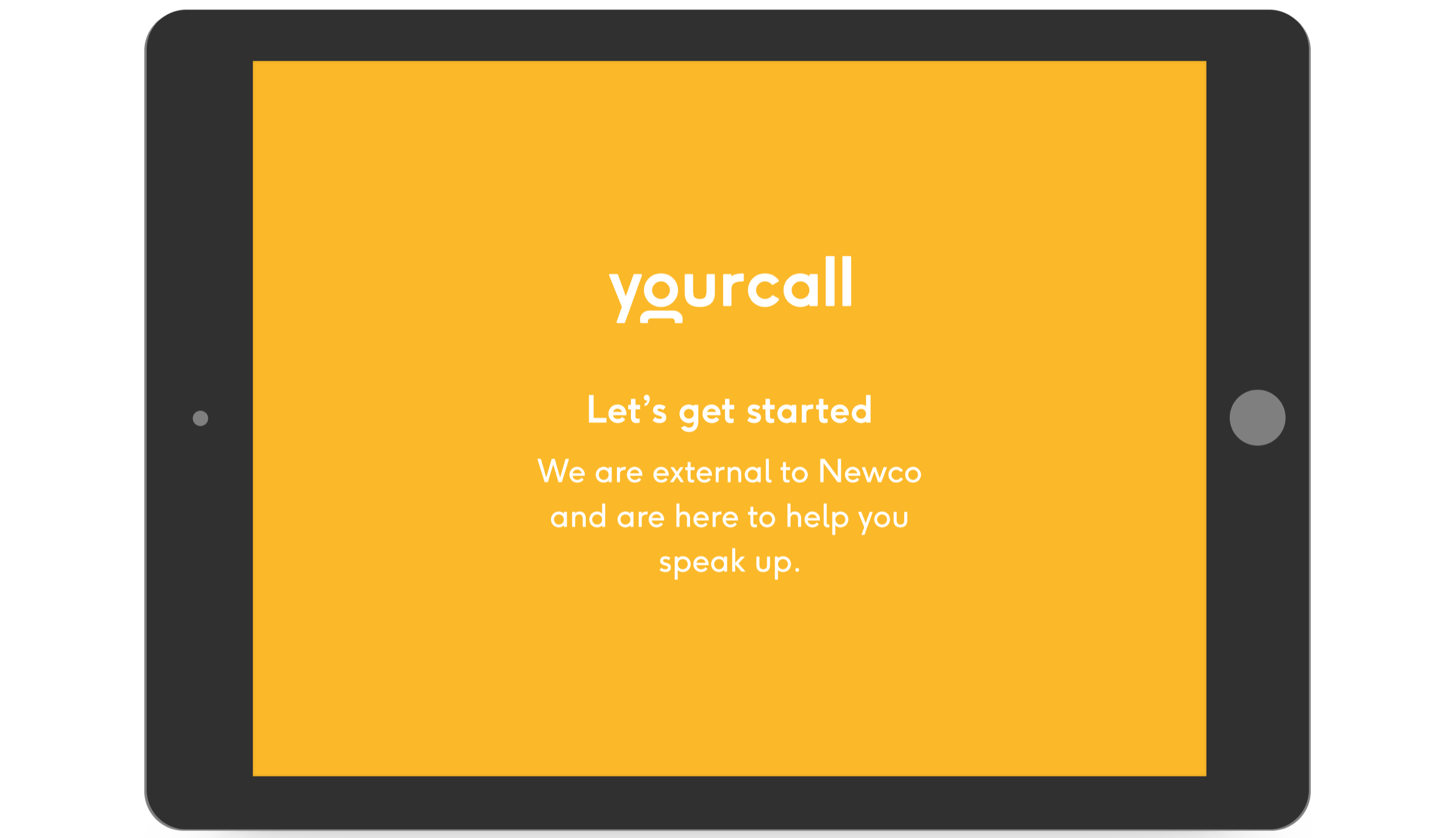When Your Call started in 2004, whistleblowing policies were often forgotten documents buried amongst piles of corporate paperwork. Today, the policies are gaining mainstream attention in a new era of accountability for organisations and individuals, from environmental violations to sexual harassment.
Your Call Whistleblowing Solutions is one of Australia’s largest independent whistleblowing providers. They offer organisations the ability to provide employees, stakeholders, and customers with an anonymous, safe speak-up channel to report concerns and wrongdoing. A Certified B Corporation since 2015, Your Call is recognised in this year’s Best for the World list for Customers. We spoke with co-founder Nathan Luker to understand the importance of trauma-informed, humanistic whistleblowing programs and how Your Call is working to change the culture of business.
Watch the conversation here, or read the interview below.
Our mission is very clear: create ethical workplaces that give a voice to all.
B Lab: What was the inspiration for founding Your Call? Did you see a gap in the market in the whistleblowing space?
Nathan: Whistleblowing is a taboo topic. However, we saw an opportunity to provide a compassionate service that was trauma-informed, that was humanistic, that facilitated a conversation from an individual at an organisation to be able to speak up about a wrongdoing or concern without judgment, without fear. And to get that into the hands of the people at the organisation who can do something about it.
Our model allows there to be an opportunity for the individual and the organisation to forge ongoing communication through a range of tools that we have in a psychologically safe manner that leads to better resolutions and to a higher number of issues.
It leads to holding both the organisation at a high ethical standard, and holding the individual accountable for the evidence and information they’ve provided to ensure that everyone moves forward with a resolution mindset.
B Lab: People who are making whistleblowing statements are quite vulnerable to their employer, but also in other ways. Tell us about some of the steps that you’ve taken to make your products safe.
Nathan: At the end of the day, this is a group or collection of human beings coexisting in a hierarchy at an organisation, hopefully with the same goal. So it seemed nonsensical to us to ostracise them or to treat them badly and cause detriment, to cut their career away from them. No one would agree that is a good idea. But for some reason, it continues to happen.
We know factually that people are in a heightened sense of stress when they’ve seen wrongdoing, either as a bystander or as a victim-survivor of a scenario. Your Call isn’t a silver bullet to that solution. But it helps be aware of it and provide resources to organisations and connections to third parties, to both elicit the information that is useful and help the organisation with a remediation plan. To help the individual gain access to the necessary resources and the safety to feel confident that they’re not going to be victimised in speaking up is critically important.

B Lab: What about some of the cultural changes you’ve seen over the years?
Nathan: The model and concept was very difficult to gain traction. There was either no or very poor legislation and standards supporting the concept as a whole, in terms of protections and governance frameworks for organisations to follow. Organisations basically didn’t trust the people to speak up anonymously. That belief was difficult to change. However, there are a range of market forces or environmental forces that change that. There is also new legislation under the Corporations Act that provides very rigorous protections for whistleblowers. There are also new ISO guidelines coming out for organisations to use and align to for best practice with whistleblower management systems.
Moving from us being in a policy in a drawer and no one really knowing about us whatsoever, we are now working with organisations in fully integrated speak up brands. It’s there for good. It outlives us, it outlives the CEO and the people there. It is how they do business now. That has been a huge cultural change.
B Lab: Do you hear anecdotal evidence about the cultural changes within the businesses using Your Call as well?
Nathan: The most profound change is these types of programs being embraced by the Board and the leadership.
B Lab: What is the way that you get access at those organisations at the highest level to make sure that these policies can truly be adopted?
Nathan: There are certain sectors required to have our service or have adopted it for a range of reasons, for example, qualifying for the provisions under the Corporations Act. One of those elements is a strong recommendation to have an external report intake method or partner like Your Call. We have a group of people who work together in a range of risk areas that we want to make sure that they feel comfortable to speak up. The equation is fairly basic. The means to get into that, there are motivators in different ways. We work with organisations of all sizes.
We also work with a number of not-for-profits, being a B Corp, in our not-for-profit community program in which we provide all of our corporate consulting and services to not-for-profits at either a concession investment or at no cost, depending on the type of organisation and how they qualify for the program to be able to help their people speak up. That’s a big part of our DNA.

B Lab: With these really large organisations, what’s the approach that you take in terms education or programs? How do you start to dismantle those things that are coming from the top?
Nathan: Some are told they need to do this from a risk consultant or legal team. That’s the price of doing business and they now need to do this. Our ability to be part of a tender process at those organisations allows us to get cut through, irrespective of whether the leadership team is on board or not. That’s step one.
If we’re wanting to understand how we actually get in front of organisations, the environmental movement and things like Me Too have placed the pressure from the bottom up. Bottom up pressure or expectations are also with the generational change at organisations, and they are demanding these types of services.
We’re not a silver bullet. It takes a broad approach and a commitment from the organisation side. Without that commitment, it will fail. We have certain checks and balances in place. For example, our intermediary model, which is a forcing function: you cannot get rid of us playing the role between the individual and the employer. That allows us to essentially provide a sunlight test to the employer and also help the person gain trust. So that forcing function goes a long way. There are strong processes for the organisation to follow up after they do so to protect the person, support them, and to run an investigation to substantiate or unsubstantiate the allegations.
I’m really pleased to say that most organisations we meet now are fully committed. We’re really pleased that the landscape has completely changed in that direction. It’s a good thing for our community and for Australians.
Interviews have been edited for clarity and length.
